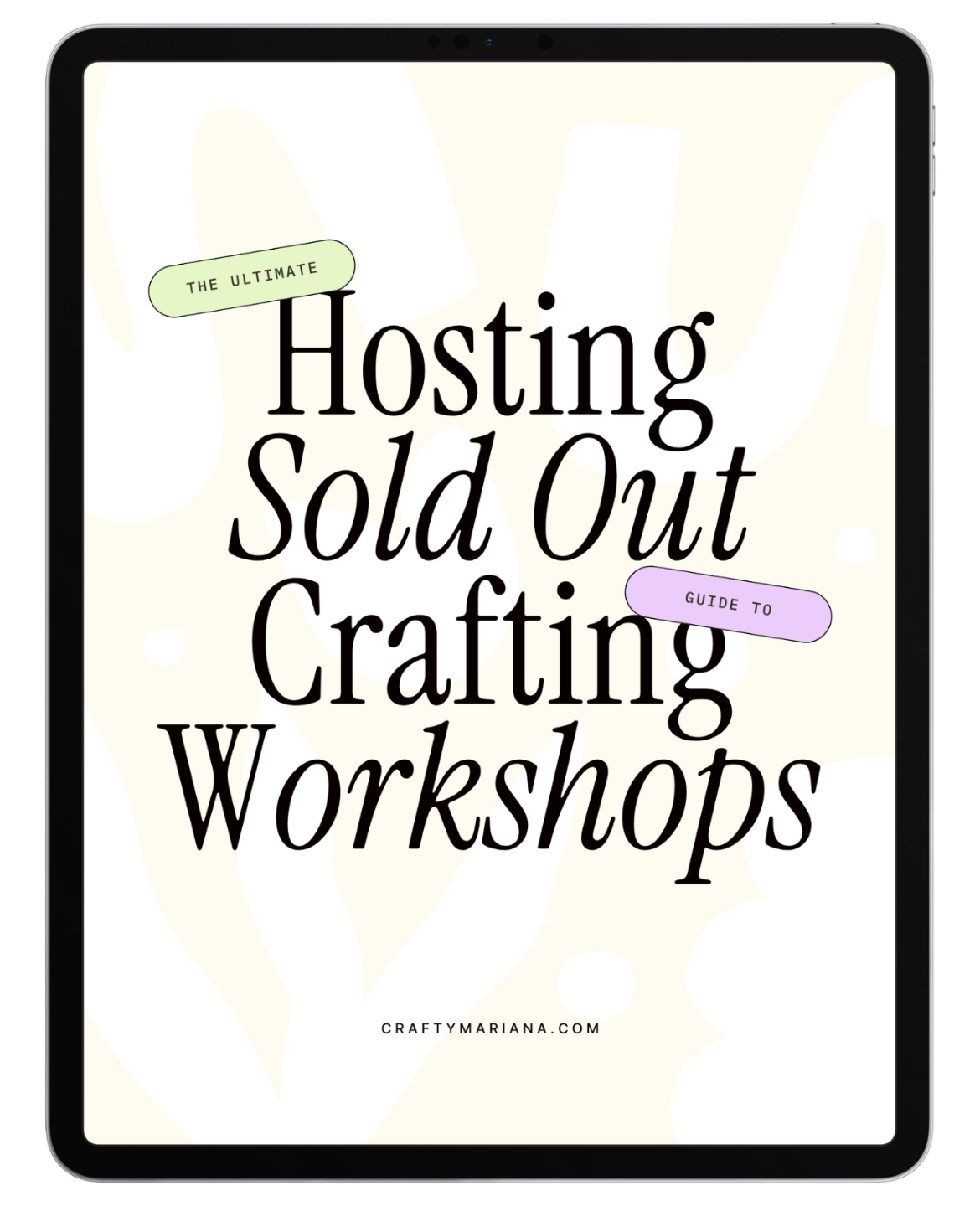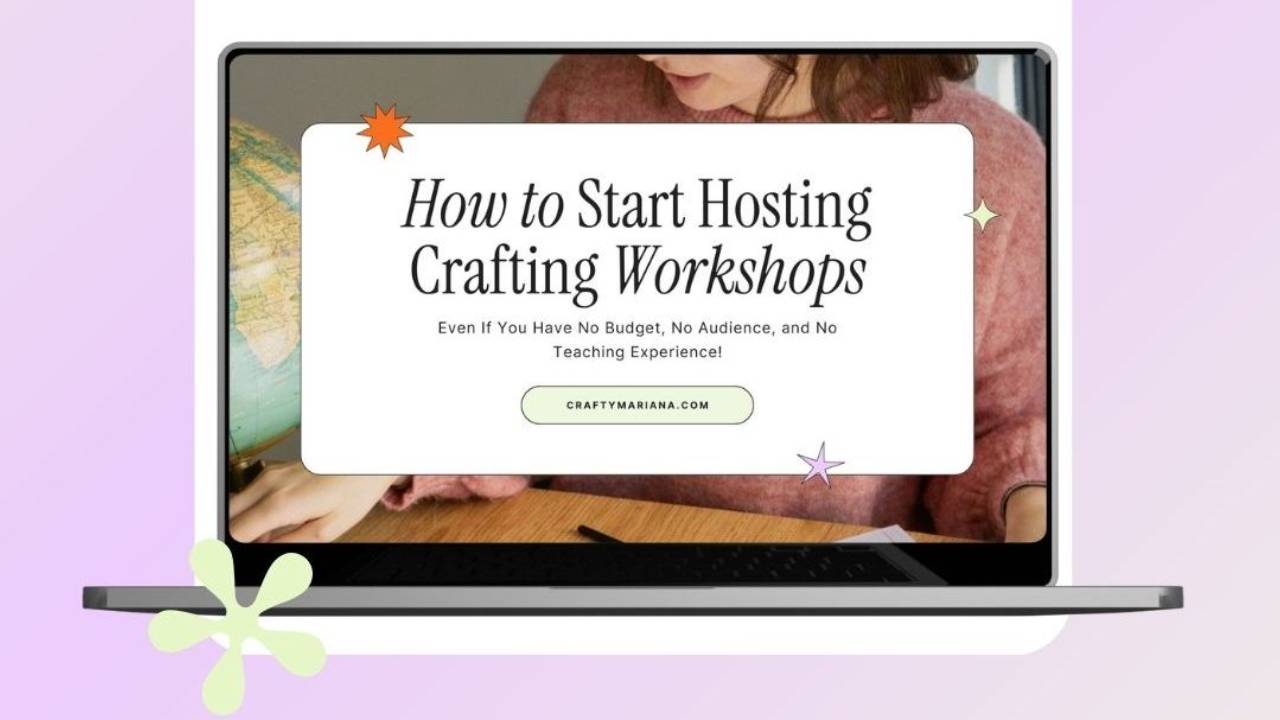Top 5 Platforms to Sell Craft Workshop Tickets: Which One Saves You the Most?

As someone who regularly hosts craft workshops, I’ve trialed a variety of platforms to manage ticket sales, and each has its strengths and weaknesses. Over time, I’ve gained a good sense of which platforms work best for certain situations. One of my absolute favorites is Humanitix. It’s incredibly easy to set up, the backend is intuitive, and I love that their fees support educational charities. They also excel in SEO, making your events more discoverable on Google. However, their fees can be steep if you're running multiple workshops, which is something I’ve experienced with my events.
ClassBento initially caught my attention because it’s specifically designed for creative workshops. However, the high commission fees kept me from using it to sell tickets, despite its user-friendly backend.
For those who want to reduce fees, Squarespace (selling tickets as physical products) has been the most cost-effective solution for me. It’s flexible and affordable, though the attendee management process requires more manual effort, like downloading and sorting spreadsheets.
Eventbrite is another platform I’ve used, and while it’s a reliable choice with great event search functionality, the fees can be a drawback. Plus, I prefer that my fees go towards charity through Humanitix.
Lastly, Lu.ma is a platform I wanted to love because of its simplicity, but the fees—especially when you consider their paid subscription model—weren't worth it for me compared to the flexibility I get with Squarespace.
In this post, I’ll compare these platforms based on my personal experiences, focusing on fees and overall suitability for selling craft workshop tickets. To give you a clearer picture, I’ve also included a hypothetical scenario where you sell 50 tickets at $30 each.
What About Shopify?
I’ve also trialed Shopify for selling craft workshop tickets, but I wouldn’t recommend it. I used the Event Ticketing app, which allowed for professional event listings and customizable ticket designs, including Apple Wallet tickets. While the app was convenient, Shopify's commissions and fees made it quite expensive, especially compared to other platforms like Squarespace. The costs simply didn’t justify the benefits in my experience.
Ok let’s dive in!
1. Humanitix
Humanitix is known for giving its profits to charity, particularly to fund education programs. It charges a 5% platform fee, plus Stripe’s payment processing fees (2.9% + $0.30 per transaction). This option suits organizers with a social mission who want their events to have a positive impact. It’s no surprise this is my favorite platform.
-
Fee Structure: 5% platform fee + 2.9% + $0.30 Stripe fee.
-
Best For: Socially-conscious organizers.
-
Pros:
-
Supports education charities with profits.
-
Competitive fees for medium events.
-
-
Cons:
-
Not as feature-rich for marketing or analytics.
-
No free tier for paid events.
-
2. Lu.ma
Lu.ma offers a simple, user-friendly platform with a 5% transaction fee for paid events and no setup fees. Additionally, Stripe’s payment processing applies (2.9% + $0.30 per transaction). This makes it a great option for small to medium-sized craft workshops.
-
Fee Structure: 5% platform fee + 2.9% + $0.30 Stripe fee.
-
Best For: Small to mid-sized craft workshops.
-
Pros:
-
Simple, user-friendly interface.
-
Free to use for free events.
-
-
Cons:
-
Limited advanced features for large events.
-
Requires Stripe integration.
-
3. Eventbrite
Eventbrite is one of the most popular ticketing platforms, offering comprehensive event management tools. However, it charges significant fees: 3.7% + $1.79 per ticket sold, plus a 2.9% payment processing fee. It’s a robust platform but may be expensive for smaller events.
-
Fee Structure: 3.7% + $1.79 per ticket + 2.9% payment processing fee.
-
Best For: Larger craft events needing advanced marketing tools.
-
Pros:
-
Advanced marketing and promotional tools.
-
Ideal for large events.
-
-
Cons:
-
Higher fees, especially for small events.
-
Can be complex for basic users.
-
4. ClassBento
ClassBento is tailored for creative workshops, making it an ideal choice for craft classes. It charges a 20% commission on bookings made through their platform. If you use their widget on your own website, the commission drops to 3.9% + $0.30 per booking.
-
Fee Structure: 20% commission for bookings via ClassBento, or 3.9% + $0.30 with the widget.
-
Best For: Creative workshops and classes.
-
Pros:
-
Tailored specifically for creative workshops.
-
Offers widget integration for lower fees.
-
-
Cons:
-
High commission on bookings via the platform.
-
Limited customization outside of arts and crafts niche.
-
5. Squarespace (Selling Tickets as Physical Products)
An alternative to traditional ticketing platforms is using a website builder like Squarespace to sell tickets as physical products. With Squarespace, you only pay Stripe’s payment processing fees (2.9% + $0.30) if you're on a plan with no additional transaction fees (view all plans here). This option offers flexibility but requires more manual setup for managing tickets.
-
Fee Structure: 2.9% + $0.30 Stripe processing fee (with a no-fee plan).
-
Best For: Organizers who want complete control over their ticket sales.
-
Pros:
-
Full control over ticket sales and branding.
-
Lower fees when using the no-fee plan.
-
-
Cons:
-
Requires more manual setup and management.
-
Lacks built-in event-specific tools.
-

Stay connected with news and updates!
Join our mailing list to receive the latest news and updates from our team.
Don't worry, your information will not be shared.
We hate SPAM. We will never sell your information, for any reason.








